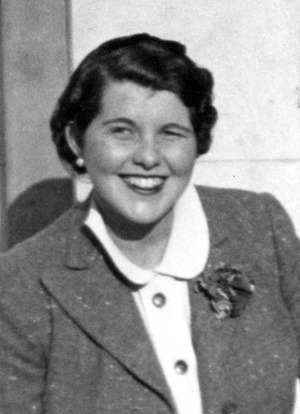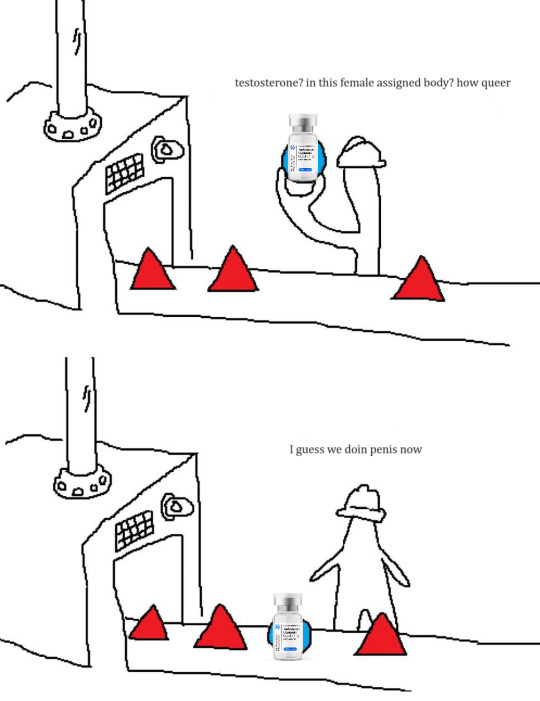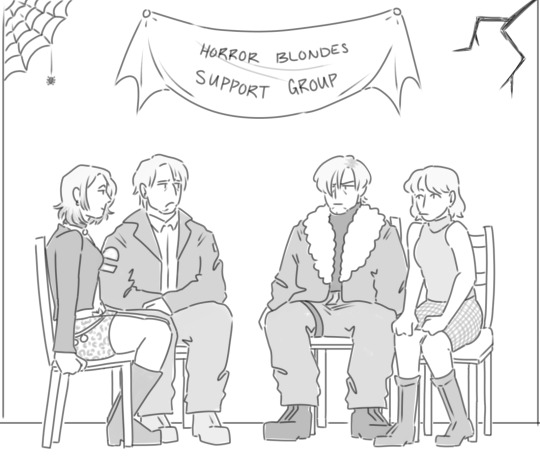#kennedy's
Explore tagged Tumblr posts
Photo


The Secret Lobotomy of Rosemary Kennedy
On September 13, 1918, Rose Kennedy, wife of prominent businessman Joseph Kennedy Sr., went into labor with her third child. Rose's obstetrician was called to the Kennedys' home, but with a pneumonia epidemic raging through Boston, he failed to arrive before the baby entered the birth canal. A nurse, desperate to stop the delivery until the doctor arrived, held Rose's legs closed. When that failed, she reached into Rose's birth canal and held the baby's head in place for an unbelievable two hours.
In the quickly expanding household of boisterous, competitive Kennedys, Rosemary was often left behind. She was held back in school, until finally Rose hired private tutors for Rosemary and kept her at home. Watching her brothers and sisters go out without her left Rosemary angry and confused. She had "fits," which could have been seizures or episodes of mental illness. Afraid of Rosemary's vulnerability, Rose never let her leave the house alone. Rosemary also often ran away.
In the 1920s, the stigma associated with mental disability could ruin a family. Many Americans, including prominent members of society like Teddy Roosevelt, Andrew Carnegie, and John D. Rockefeller, believed in eugenics, a pseudoscience that advocated for forced sterilization of the "defective," a group that included the mental and physically disabled. And then, of course, the Kennedys were devout Catholics, whose church deemed disability the result of sin—a punishment from God.
Rosemary's disability was a challenge her mother couldn't face alone. At age 11, Rosemary was sent to boarding school. Over the next nine years, she attended five different schools. Her letters home show a young girl struggling to get it right. She wrote in a childish script that slants down dramatically off the page. She misspelled words and wrote incomplete sentences. Each letter is filled with a daughter's a desperate desire for approval and affection.
While in Britain, Rosemary found brief respite. She was enrolled in Belmont House, a boarding school run by Catholic nuns who embraced the Montessori Method of education, which focused on learning through practical skills and hands-on activities. Rosemary flourished under the guidance of the nuns, who trained her to be a teacher's aide. But after the Germans marched on Paris in the summer of 1940, her family brought her back to the States. Rosemary's reprieve was over.
Back at home, Rosemary watched her siblings begin their lives and careers, while she wasn't even allowed outside alone. Rose tried to find another school for her daughter, but few places were equipped to take a disabled adult in her 20s. Rosemary was eventually sent to a convent, where she began sneaking out at night and going to bars.
Joe Sr. was busy plotting the political career of his two oldest sons. Wanting to avoid scandal and looking to find a cure for his daughter's erratic behavior, he began speaking to Dr. Walter Freeman and his associate Dr. James Watts, the leading practitioners of lobotomies in America. At the time, the procedure was heralded as a cure for the physically disabled and mentally ill..
Joe Sr. discussed the procedure with Rose, who asked their daughter Kathleen to look into it. Kathleen spoke with a reporter, John White, investigating mental illness and treatments. White told Kathleen that the effects of lobotomies were "no good." Clifford Larson writes that Kathleen immediately reported back to her mother: "Oh, Mother, no, it's nothing we want done for Rosie." But whether out of desperation or determination, Joe Sr. went ahead with the surgery.
At the age of 23, Rosemary was admitted to George Washington University Hospital, where she was strapped to a table and given an anaesthetic to numb the areas of her brain where Freeman and Watts would drill two small holes. They then inserted a small metal spatula and sliced the connections between her pre-frontal cortex and the rest of her brain. (Freeman often used ice picks for the procedure, hammering the pick in through the eye socket.) Rosemary was wide awake the whole time. The doctors had her recite poems as they cut—when she was silent, they knew the procedure was complete.
The hope was that the procedure would subdue Rosemary and end her rebellious jaunts about town. But the result was far more extreme: After the lobotomy, Rosemary was no longer able to walk or talk. It took months of therapy before she regained the ability to move on her own, recouping only the partial use of one arm. One of her legs was permanently turned inward. Months after the surgery, when she regained her ability to speak, it was a mix of garbled sounds and words. The result must have been shocking to Joe Sr., who had clung to the procedure as his last hope for Rosemary. But it couldn't have shocked Dr. Freeman, who had no surgical training and no proof of the astounding results he had claimed.
Immediately after the surgery, Joe Sr. moved Rosemary to Craig House, a psychiatric care facility where Zelda Fitzgerald once stayed. At the end of the 1940s, Joe Sr. had her moved to Saint Coletta's, a residential care facility in Jefferson, Wisconsin, where Rosemary lived until her death in 2005.
For 20 years, Rosemary was hidden from her family.
In 1961, Joe Sr. suffered a stroke, and in early 1962, Rose finally saw her daughter again. Koehler-Pentacoff, whose aunt was one of Rosemary's primary caretakers at Saint Coletta's, recalls being told that during their first meeting, Rosemary attacked her mother. Angry, wounded, and abandoned, Rosemary was fighting for herself.
Twenty years after the barbaric procedure that derailed Rosemary's life, the Kennedys began to fight for her too. Rosemary's sister Eunice Kennedy Shriver founded the Special Olympics in 1968 and became a leading advocate for disability rights. Rosemary's nephew Anthony Shriver became an activist for people with developmental disabilities and founded the non-profit Best Buddies International. Rosemary's older brother John F. Kennedy, who became the 35th president of the United States, signed the Maternal and Child Health and Mental Retardation Planning Amendment to the Social Security Act, the first major legislation to combat mental illness and retardation, in 1963. It was a precusor to the American's with Disabilities Act, which Rosemary's little brother Ted—who served as a Democratic Senator for Massachusetts from 1962 until his death in 2009—championed. (It was eventually made law in 1990.) Ted Kennedy also sat on the board of the American Association of People with Disabilities.
152 notes
·
View notes
Text


The Secret Lobotomy of Rosemary Kennedy
On September 13, 1918, Rose Kennedy, wife of prominent businessman Joseph Kennedy Sr., went into labor with her third child. Rose's obstetrician was called to the Kennedys' home, but with a pneumonia epidemic raging through Boston, he failed to arrive before the baby entered the birth canal. A nurse, desperate to stop the delivery until the doctor arrived, held Rose's legs closed. When that failed, she reached into Rose's birth canal and held the baby's head in place for an unbelievable two hours.
In the quickly expanding household of boisterous, competitive Kennedys, Rosemary was often left behind. She was held back in school, until finally Rose hired private tutors for Rosemary and kept her at home. Watching her brothers and sisters go out without her left Rosemary angry and confused. She had "fits," which could have been seizures or episodes of mental illness. Afraid of Rosemary's vulnerability, Rose never let her leave the house alone. Rosemary also often ran away.
In the 1920s, the stigma associated with mental disability could ruin a family. Many Americans, including prominent members of society like Teddy Roosevelt, Andrew Carnegie, and John D. Rockefeller, believed in eugenics, a pseudoscience that advocated for forced sterilization of the "defective," a group that included the mental and physically disabled. And then, of course, the Kennedys were devout Catholics, whose church deemed disability the result of sin—a punishment from God.
Rosemary's disability was a challenge her mother couldn't face alone. At age 11, Rosemary was sent to boarding school. Over the next nine years, she attended five different schools. Her letters home show a young girl struggling to get it right. She wrote in a childish script that slants down dramatically off the page. She misspelled words and wrote incomplete sentences. Each letter is filled with a daughter's a desperate desire for approval and affection.
While in Britain, Rosemary found brief respite. She was enrolled in Belmont House, a boarding school run by Catholic nuns who embraced the Montessori Method of education, which focused on learning through practical skills and hands-on activities. Rosemary flourished under the guidance of the nuns, who trained her to be a teacher's aide. But after the Germans marched on Paris in the summer of 1940, her family brought her back to the States. Rosemary's reprieve was over.
Back at home, Rosemary watched her siblings begin their lives and careers, while she wasn't even allowed outside alone. Rose tried to find another school for her daughter, but few places were equipped to take a disabled adult in her 20s. Rosemary was eventually sent to a convent, where she began sneaking out at night and going to bars.
Joe Sr. was busy plotting the political career of his two oldest sons. Wanting to avoid scandal and looking to find a cure for his daughter's erratic behavior, he began speaking to Dr. Walter Freeman and his associate Dr. James Watts, the leading practitioners of lobotomies in America. At the time, the procedure was heralded as a cure for the physically disabled and mentally ill..
Joe Sr. discussed the procedure with Rose, who asked their daughter Kathleen to look into it. Kathleen spoke with a reporter, John White, investigating mental illness and treatments. White told Kathleen that the effects of lobotomies were "no good." Clifford Larson writes that Kathleen immediately reported back to her mother: "Oh, Mother, no, it's nothing we want done for Rosie." But whether out of desperation or determination, Joe Sr. went ahead with the surgery.
At the age of 23, Rosemary was admitted to George Washington University Hospital, where she was strapped to a table and given an anaesthetic to numb the areas of her brain where Freeman and Watts would drill two small holes. They then inserted a small metal spatula and sliced the connections between her pre-frontal cortex and the rest of her brain. (Freeman often used ice picks for the procedure, hammering the pick in through the eye socket.) Rosemary was wide awake the whole time. The doctors had her recite poems as they cut—when she was silent, they knew the procedure was complete.
The hope was that the procedure would subdue Rosemary and end her rebellious jaunts about town. But the result was far more extreme: After the lobotomy, Rosemary was no longer able to walk or talk. It took months of therapy before she regained the ability to move on her own, recouping only the partial use of one arm. One of her legs was permanently turned inward. Months after the surgery, when she regained her ability to speak, it was a mix of garbled sounds and words. The result must have been shocking to Joe Sr., who had clung to the procedure as his last hope for Rosemary. But it couldn't have shocked Dr. Freeman, who had no surgical training and no proof of the astounding results he had claimed.
Immediately after the surgery, Joe Sr. moved Rosemary to Craig House, a psychiatric care facility where Zelda Fitzgerald once stayed. At the end of the 1940s, Joe Sr. had her moved to Saint Coletta's, a residential care facility in Jefferson, Wisconsin, where Rosemary lived until her death in 2005.
For 20 years, Rosemary was hidden from her family.
In 1961, Joe Sr. suffered a stroke, and in early 1962, Rose finally saw her daughter again. Koehler-Pentacoff, whose aunt was one of Rosemary's primary caretakers at Saint Coletta's, recalls being told that during their first meeting, Rosemary attacked her mother. Angry, wounded, and abandoned, Rosemary was fighting for herself.
Twenty years after the barbaric procedure that derailed Rosemary's life, the Kennedys began to fight for her too. Rosemary's sister Eunice Kennedy Shriver founded the Special Olympics in 1968 and became a leading advocate for disability rights. Rosemary's nephew Anthony Shriver became an activist for people with developmental disabilities and founded the non-profit Best Buddies International. Rosemary's older brother John F. Kennedy, who became the 35th president of the United States, signed the Maternal and Child Health and Mental Retardation Planning Amendment to the Social Security Act, the first major legislation to combat mental illness and retardation, in 1963. It was a precusor to the American's with Disabilities Act, which Rosemary's little brother Ted—who served as a Democratic Senator for Massachusetts from 1962 until his death in 2009—championed. (It was eventually made law in 1990.) Ted Kennedy also sat on the board of the American Association of People with Disabilities.
18 notes
·
View notes
Text


Resident Evil 4 Remake (2023) Leon S. Kennedy [ 1 / ??? ]
#Resident Evil#Resident Evil 4#Resident Evil 4 Remake#REmake4#Leon S. Kennedy#Leon Kennedy#RE4#survival horror#residenteviledit#gamingedit#video games#videogamemen#dailygaming#my gif#my edit#loyal guard dog ~ ♥#*LeeleeRE
97K notes
·
View notes
Text

#delusional til i die#x reader#star wars x reader#anakin skywalker x reader#anakin skywalker#tom riddle#slytherin boys x reader#formula 1#f1 x reader#leon kennedy x reader#the vampire diaries#the originals#max verstappen x reader#spencer reid x reader#klaus mikaelson x reader#genshin impact#genshin impact x reader#harry potter#harry potter x reader#fanfic#fan fiction#charles leclerc#lando norris#kpop#dean winchester x reader#sam winchester x reader#anime#naruto#gojo satoru x reader#jujutsu kaisen
76K notes
·
View notes
Text

#resident evil#resident evil 4#resident evil 4 remake#resident evil remake#re4#re4 remake#leon s kennedy#leon kennedy#leon scott kennedy#my game screenshots#my gameplay#my screenshots#virtual photography#old dragon
26K notes
·
View notes
Text
family: “why are you just sitting in ur room smiling at ur phone?”
me who’s been reading smut about fictional characters for the past 6 hours:

#smut#relatable#neteyam x reader#jake sully x reader#lo’ak x reader#tonowari x reader#miguel o’hara x reader#simon ghost riley x reader#ghost x reader#konig x reader#draco malfoy x reader#mattheo riddle x reader#ellie williams x reader#harry potter x reader#rick grimes x reader#dean winchester x reader#neytiri x reader#wanda maximoff x reader#natasha romanoff x reader#steve rogers x reader#bucky barnes x reader#edmund pevensie x reader#eddie munson x reader#steve harrington x reader#robin buckley x reader#five hargreeves x reader#leon kennedy x reader#gojo satoru x reader#rafe cameron x reader#logan howlett x reader
56K notes
·
View notes
Text
I'm not just a bitch, I'm a bitch with a backstory

#x reader#matt sturniolo x reader#chris sturniolo x reader#dean winchester x reader#draco malfoy x reader#harry potter x reader#leon kennedy x reader#sam winchester x reader#pedro pascal x reader#eddie munson x reader#tumblr#relatable#franco colapinto x reader#charles leclerc x reader#one direction#fred weasley x reader#spencer reid x reader#marvel#ao3#writers on tumblr
14K notes
·
View notes
Text

18K notes
·
View notes
Text
I feel like a virgin when I search up “x Reader” with a new character I like
#leon kennedy x reader#gojo satoru smut#getou suguru x reader#eren jeager x reader#choso smut#rafe cameron x reader#coriolanus x reader#sukuna x Reader#yandere#daemon x reader#aemond x reader#jean x reader#armin x reader smut#rick grimes x reader#theodore nott x reader#dick grayson smut#op smut#zoro x reader#kid x reader#doflamingo x reader#jujutsu kaisen smut#snk smut#weird girl
16K notes
·
View notes
Text

animal crossing x resident evil
#resident evil#leon kennedy#resident evil 4#leon s kennedy#resident evil 4 remake#animal crossing#del lago
12K notes
·
View notes
Text

45K notes
·
View notes
Text

the gang goes to therapy.
#love these freaks#dresses them up like barbies and makes them play together#resident evil#re4#resident evil 4#re4r#silent hill#silent hill 2#sh2#leon kennedy#ashley graham#maria silent hill#james sunderland#art#fanart#my art#egg art#artists on tumblr
10K notes
·
View notes
Text
y’all ever fantasize about a fictional character a little too hard to the point you’re convinced you should be admitted to a mental hospital?

#daryl dixon x reader#rick grimes x reader#roman roy x reader#coriolanus x reader#steve rogers x reader#peter parker x reader#peeta mellark x reader#leon kennedy x reader#joel miller x reader#bucky x reader#eddie munson x reader#negan smith x reader#din djarin x reader#javier pena x reader#ari levison x reader#andy barber x reader#steve harrington x reader#carmen berzatto x reader#lalo salamanca x reader#nacho varga x reader#finnick x reader#mike schimdt x reader#william afton x reader#johnny lawrence x reader
33K notes
·
View notes


